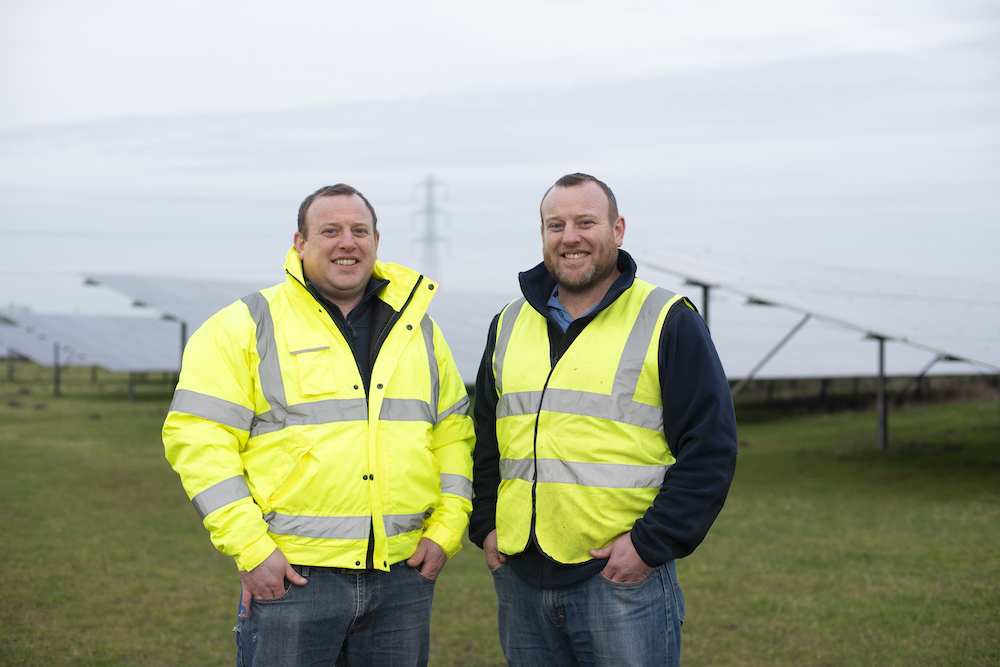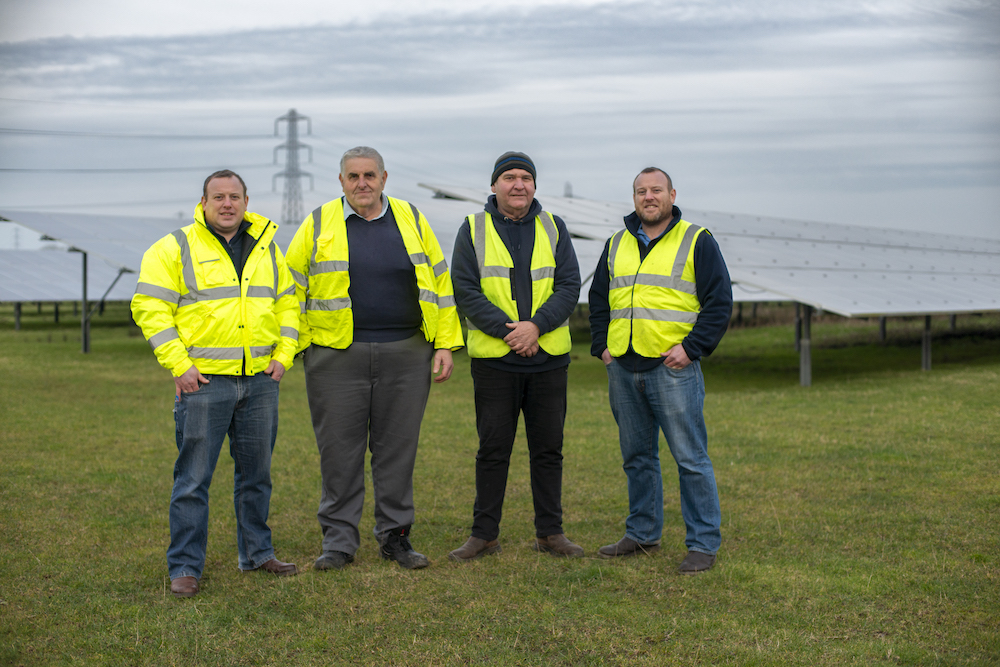From soil to solar: Uniting agriculture and solar innovation

Alex and Dan Price
Farming in Wales is more challenging than ever. Economic uncertainty and environmental regulations are reshaping the industry.
As a result, diversification is no longer an option but a necessity.
Embracing solar has been a pivotal step in addressing these challenges. By working alongside fellow landowners, we have secured financial stability while also strengthening our role as environmental stewards.
Our journey illustrates how solar innovation can harmonise traditional farming with the pressing need for sustainability in our local communities.
As custodians of the land for three generations, our family has experienced the highs and lows of farming life.
In 2010, EnergyMyWay proposed a solar farm on part of our land. Though sceptical at first, we soon recognised the substantial investment potential. Determined to maintain our role as land managers, we established Llanwern Solar Services (LSS) with other landowners to help oversee operations and maintenance around the 75MW site.
Securing financial stability through solar
Agriculture today is tough. Market volatility and increasing Government environmental regulations have made it challenging to sustain a viable farming business.
Farmers are under pressure to adopt sustainable practices but many lack the financial means to do so.
Solar has been a lifeline for our farm, providing financial stability in an unpredictable market.
The reliable income from pre-agreed payments allows us to reinvest in the farm, improve safety standards, and upgrade our equipment.
With solar helping us weather market fluctuations, we have been able to maintain our traditional farming practices, confident in our financial security, and embrace the modern standards needed to make our work safer and more efficient.
Uniting sustainability and agriculture
Some may not initially recognise solar energy as part of farming but our experience proves otherwise.
Being part of this scheme has not only preserved but enhanced our role as stewards of the land. Since introducing solar to the farm, biodiversity has flourished – we have seen more wildlife, particularly small mammals, and the ecosystem is thriving.
Through Llanwern Solar Services (LSS), we manage environmental plans that include hedge maintenance, weed control, and watercourse restoration.
We have planted a wildflower meadow that will support the local protected Shrill Carder Bee population.
We also manage mitigation areas for Lapwing which will hopefully encourage more of them.
While the project is still at an early stage we are seeing positive signs already. Being able to manage and nurture our environment has also been possible because of the financial incentives from the solar project.

Solar remains a contentious topic in Wales, but our experience shows that concerns often fade once projects are in place. Initially, some local residents were hesitant, though landowners were generally more receptive.
Thanks to careful site selection and effective screening we have ensured minimal visual impact. The application process also actively avoided public rights of way and considered community concerns. Today, opposition has largely disappeared, and we have received no complaints from residents since construction.
The project has also had a positive impact on our local economy. We use local colleges and businesses for our training for operations, licensing, and health and safety. We have also provided critical resources like defibrillator packs to the community, enhancing local safety and support systems.
Realising solar’s potential for Welsh farming
Our business, Llanwern Solar Services, has been a great success and with increasing job opportunities, we anticipate expansion in the near future. This growth is offering new opportunities for young local farmers at a time when the agricultural industry is facing significant challenges.
But to fully unlock the potential of solar in Wales, we need a more efficient and supportive planning system. The current process is slow – our project took nearly a decade, and some farms don’t have that long to wait. Faster approvals and stronger public and political backing could help farmers across the country embrace solar as a practical, sustainable, and profitable solution.
Overall combining solar energy with traditional farming has been a transformative success story. While the journey had its challenges, particularly with planning, the results highlight the positive change that farming innovation can bring when paired with solar. We encourage politicians and the agriculture industry in Wales to embrace the transformative potential of solar energy.
Support our Nation today
For the price of a cup of coffee a month you can help us create an independent, not-for-profit, national news service for the people of Wales, by the people of Wales.






So 75 MW total capacity spread over several farms. I wonder how many MW per farm?
I’m afraid there’s another side to this story. The development has managed to destroy a nesting site for red-list species birds and also dramatically reduce the number of bats and rare bees. The developers are in trouble with the local authority for not delivering the promised benefits for biodiversity. Some people are making a lot of money and although this is a ‘green’ develpment, nature is paying a heavy price.